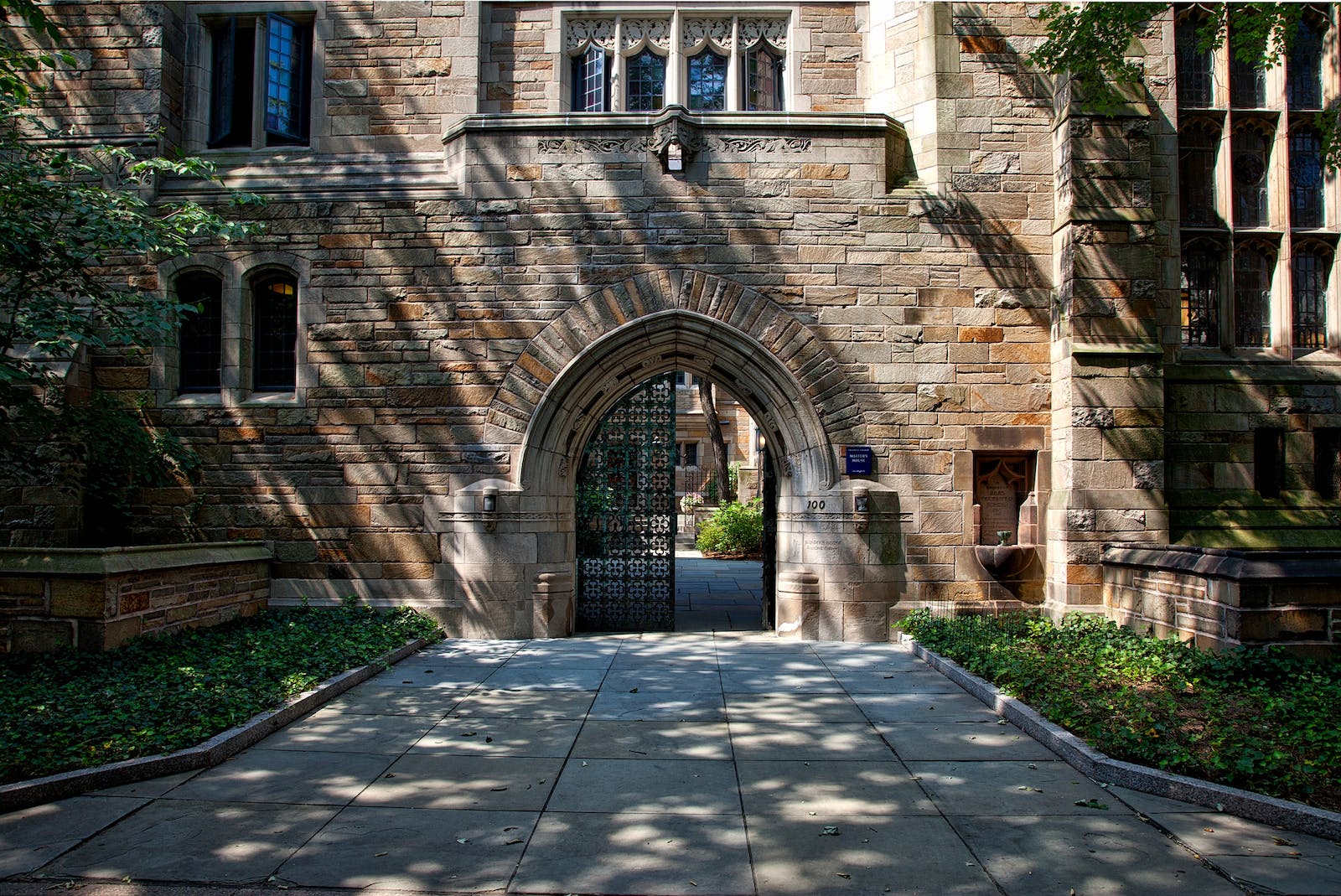The Double-Edged Sword of Academic Life: Pros and Cons
Exploring the Bright and Dark Sides of Academic Life
Academic life offers a unique blend of opportunities and challenges that can shape a person's future in profound ways. Whether you're a student navigating through university or a seasoned academic pursuing research, the experiences you gather during this journey can have lasting effects on your personal and professional life. However, while there are many benefits to engaging deeply in academic pursuits, there are also significant drawbacks that can lead to stress and burnout. In this article, we will uncover the various advantages and disadvantages of academic life and shed light on what it truly means to be part of this complex world.
Delving into the realm of academic life reveals a landscape rich with intellectual stimulation, opportunities for personal growth, and the potential for social mobility. However, alongside these positives lies a reality fraught with excessive pressure, competition, and the ever-looming specter of student debt. The balance between these two sides is delicate, and understanding both can prepare current and future academics for what lies ahead. By exploring both the positive and negative aspects of academic life, readers can obtain a comprehensive view that helps them navigate their own educational journeys more effectively.
Pros
Engaging in academic life provides numerous advantages that can significantly enrich an individual’s personal and professional journey. The pursuit of knowledge not only broadens intellectual horizons but also instills critical thinking skills that are indispensable in today’s fast-paced world. Furthermore, academic life lays the groundwork for vibrant networking opportunities, enabling students and researchers alike to connect with influential figures in their fields. This section will explore the myriad benefits of academic life and how they contribute to overall personal and societal growth.
Career Advantages: More Than Just a Degree
For many, pursuing an academic path is linked to improved employment prospects. Degrees from respected institutions can open doors to various industries and help individuals stand out in competitive job markets. Many employers actively seek out candidates with advanced degrees or specialized knowledge, making academic life an invaluable investment. Furthermore, academic life instills a strong work ethic, perseverance, and discipline—qualities that are highly regarded in any profession. With transferable skills gained through rigorous coursework and research, graduates often find themselves better equipped to tackle challenges and excel in their chosen careers.
Diverse Perspectives: Exposure to Various Cultures
Academic life often brings together students from diverse backgrounds, fostering an environment rich in cultural exchange. This exposure enables students to learn from different viewpoints and experiences, broadening their horizons. Engaging with peers from around the world enriches discussions, encourages empathy, and promotes understanding of global issues. Such interactions can accelerate personal growth and enhance critical thinking skills, preparing students for increasingly interconnected workplaces.
Personal Development: Building Essential Life Skills
Engaging in academic life challenges students to develop crucial life skills such as time management, critical thinking, and effective communication. Balancing coursework, projects, and extracurricular activities teaches students to prioritize tasks and manage their time wisely. Additionally, through presentations and collaborative work, they refine their ability to articulate ideas clearly, a skill that is invaluable in both professional and personal contexts. These skills often contribute to greater self-confidence and adaptability in various situations.
Knowledge is Power: The Intellectual Growth
One of the primary advantages of academic life is the intellectual growth it fosters. Students have access to a wealth of information, diverse perspectives, and in-depth exploration of various subjects. This immersion in academia cultivates critical thinking skills and encourages independent thought. As individuals engage with complex concepts, they develop the ability to analyze, synthesize, and apply knowledge practically. These cognitive skills not only enhance academic performance but also prepare students for the challenges of the professional world. Moreover, the academic environment promotes a culture of curiosity, urging individuals to ask questions and seek answers—a habit that can lead to lifelong learning.
Networking: Building Lifelong Connections
Another significant benefit of academic life is the opportunity to establish connections that can last a lifetime. Universities serve as melting pots of diverse individuals, bringing together students, professors, and industry professionals. This environment allows for the exchange of ideas and experiences, helping individuals to grow their personal and professional networks. These connections can be instrumental in securing internships, job placements, and collaborations for research projects. The relationships built during one's academic journey often extend into fruitful careers, providing both social support and professional guidance in future endeavors.
Access to Resources: Harnessing Academic Tools
Students in academia often gain access to a wealth of resources that enhance their learning experience. Libraries, laboratories, and cutting-edge technology are just the tip of the iceberg. Many institutions offer research funding, mentorship programs, and academic journals, enabling students to dive deeper into their fields of interest. This access not only supports their education but also fosters innovation and collaboration among peers, paving the way for groundbreaking discoveries.
Holistic Development: Growth Beyond Academia
Academic life often encourages participation in extracurricular activities, such as clubs, sports, and volunteer opportunities. This holistic development allows students to explore their interests, develop leadership skills, and enhance their emotional intelligence. Engaging in diverse experiences alongside academic work can lead to well-rounded individuals who are better prepared for the complexities of life after school.
Access to Resources: A Wealth of Information
Being part of an academic institution grants students access to an abundance of resources, such as libraries, laboratories, and research materials. These facilities enable students to delve deeper into their subjects, fueling their curiosity and enhancing their learning experience. Additionally, institutions often provide access to workshops, tutoring services, and academic counseling, which can significantly improve academic performance and personal growth.
Cultural Exposure: Embracing Diversity
Academic life often brings together individuals from various backgrounds, cultures, and perspectives. This environment fosters cultural exchange, broadens worldviews, and promotes inclusivity. Engaging with a diverse student population encourages empathy and understanding, preparing students to function effectively in an increasingly globalized world.
Missing a pro?
Let us know which pro you are missing!
Cons
While the benefits of academic life are manifold, it is equally essential to acknowledge the disadvantages that can accompany this journey. The pressures of academic performance, financial burdens, and the impact on mental health are just a few challenges commonly faced by students and academics alike. In this section, we will examine some of the critical drawbacks of academic life, shedding light on the realities that many may encounter as they navigate their educational pursuits.
Commodification of Education: An Increasingly Expensive Endeavor
The rising costs associated with higher education can sometimes result in a commodified view of learning, where education is treated as a product rather than a transformative experience. This perception can diminish the intrinsic value of learning and lead students to prioritize financial considerations over educational ones. As a consequence, the true essence of academic inquiry may be overshadowed by the pressure to secure high-paying jobs, impacting students’ motivations and engagement in their studies.
Limited Practical Experience: Theory vs. Practice
While academic programs emphasize theoretical knowledge, many students find that they lack practical experience when entering the job market. This gap between theory and practice can leave graduates feeling unprepared for real-world challenges. Employers often seek candidates with hands-on experience, making it crucial for academic institutions to incorporate internships, co-op programs, and practical training into their curricula.
Student Debt: The Financial Burden
Financing one's education is another significant concern in academic life. The rising costs of tuition fees, textbooks, and materials can lead to substantial student debt, often with long-term repercussions. Many students take on loans that can follow them for years, impacting their financial stability and career choices after graduation. Moreover, not all degrees guarantee lucrative job opportunities, leading some graduates to struggle with balancing their aspirations and financial realities. The burden of debt can overshadow the overall benefits of an academic education, creating a dilemma for many aspiring scholars.
Isolation and Mental Health Challenges
The social dynamics of academic life can also pose challenges, with many students experiencing feelings of isolation. Balancing rigorous coursework and research commitments may leave little time for social interactions, which can affect mental well-being. Additionally, the stigma surrounding mental health in academia often leads individuals to suffer in silence, exacerbating feelings of loneliness and depression. It is essential to address these mental health challenges and provide support within the academic community, as fostering a sense of belonging is vital for emotional resilience and success in academic pursuits.
Rigid Structure: Lack of Flexibility
Academic programs often come with a rigid structure that can hinder students’ ability to explore diverse interests. Mandatory courses, scheduled classes, and strict curricula may limit opportunities for interdisciplinary studies or personal exploration. This lack of flexibility can lead to frustration and disengagement among students who wish to pursue unique paths or explore subjects outside their primary field of study, potentially affecting their overall educational experience.
Imposter Syndrome: Doubt and Anxiety
Many students experience imposter syndrome during their academic journey, feeling inadequate despite their achievements. This mindset can lead to anxiety, self-doubt, and a constant fear of being 'found out' as a fraud. Persistent feelings of inadequacy can hinder academic performance and negatively impact mental wellness, making it essential for institutions to address such issues through support programs.
Burnout: The Consequence of Overcommitment
The demanding nature of academic life can lead to burnout, a state of physical, emotional, and mental exhaustion. As students juggle coursework, part-time jobs, and extracurricular activities, they may neglect self-care and personal well-being. This overcommitment often results in decreased productivity and can create a vicious cycle of stress and fatigue, ultimately affecting academic performance.
Pressure Cooker: The Strain of Academic Expectations
One of the most significant downsides of academic life is the immense pressure to perform. From constant deadlines and examinations to the need to publish research, students and academics often find themselves overwhelmed by the expectations placed upon them. This chronic pressure can lead to stress, anxiety, and even burnout—issues that can sap the joy out of learning and hinder overall performance. The competitive nature of academia can exacerbate these feelings, as individuals often compare themselves to their peers, leading to self-doubt and decreased motivation. Recognizing and managing this pressure is crucial for maintaining a healthy academic experience.
Limited Practical Experience: Theory Over Practice
While academic life emphasizes theoretical knowledge, it may not always provide ample practical experience relevant to the job market. Many programs focus heavily on lectures and exams, potentially leaving students without the hands-on skills employers increasingly value. This gap can result in graduates who excel in theory but struggle to apply their knowledge in real-world scenarios. Bridging this divide often requires students to seek internships or additional training outside their formal education.
Missing a con?
Let us know which con you are missing!
Conclusion
In conclusion, academic life presents a complex interplay of advantages and disadvantages that future students must navigate thoughtfully. While the pursuit of knowledge offers opportunities for intellectual growth, networking, and career advancement, it also comes with considerable pressures, financial burdens, and mental health challenges. By understanding both sides, individuals can better prepare themselves for the realities of educational journeys, drawing upon the support systems and strategies needed to succeed. Ultimately, striking a balance between the benefits and drawbacks of academic life is key to cultivating a rewarding and sustainable academic experience.
What do you think?
Do you think the pros outweigh the cons?







